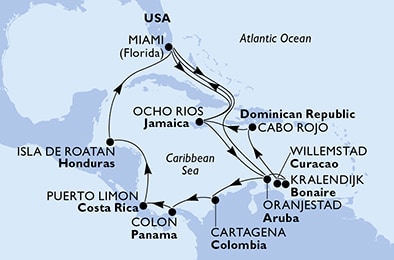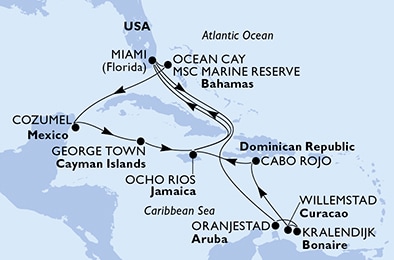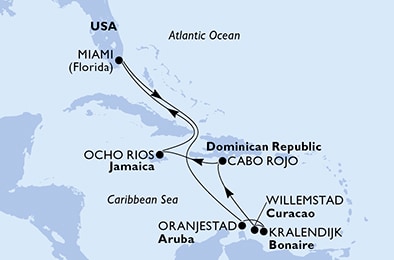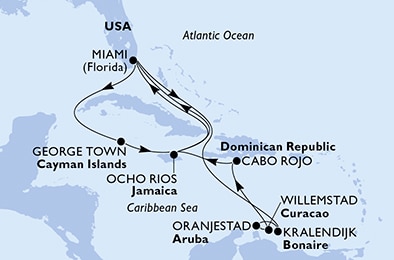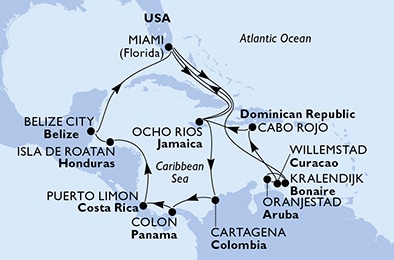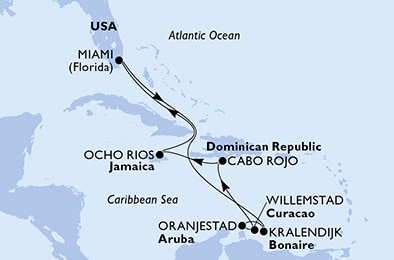
Port Cabo Rojo
Cabo Rojo, a stunning coastal town located on the southwestern tip of Puerto Rico, is a paradise for nature lovers and beach enthusiasts. Known for its pristine beaches and breathtaking landscapes, Cabo Rojo offers some of the most picturesque views on the island. Playa Sucia, also called La Playuela, is one of its most famous beaches, featuring soft white sand, crystal-clear waters, and dramatic cliffs. Nearby, the iconic Cabo Rojo Lighthouse (El Faro Los Morrillos) stands proudly atop limestone cliffs, providing panoramic views of the Caribbean Sea and offering a perfect spot for photography and sunset watching.
Beyond its beaches, Cabo Rojo is a haven for outdoor adventure and ecological exploration. The Salt Flats and Wildlife Refuge is a unique attraction where visitors can learn about the area’s historic salt production and enjoy birdwatching in a serene environment. Boquerón, a charming fishing village within Cabo Rojo, offers a lively yet laid-back atmosphere with its colorful streets, local seafood restaurants, and bohemian vibes. Whether you're seeking relaxation on the beach, exploring lush nature, or diving into Puerto Rico's vibrant culture, Cabo Rojo is a must-visit destination that captures the essence of the island’s beauty and charm.
History
Cabo Rojo, located in the southwest of Puerto Rico, has a rich history rooted in both its indigenous and colonial past. The area was originally inhabited by the Taíno people, the island’s native population, who left behind cultural remnants such as petroglyphs. The name "Cabo Rojo," meaning "Red Cape," is believed to reference the red-tinted salt flats and cliffs in the area. After the arrival of the Spanish colonizers in the late 15th century, the region became an important site for salt production, which played a significant role in the local economy during the colonial period. The town was officially founded in 1771, and its salt flats, known as Las Salinas de Cabo Rojo, remain an enduring symbol of its historical significance.
During the 19th century, Cabo Rojo expanded as a hub for agriculture, including sugarcane cultivation and livestock farming. In 1882, the Spanish government built the Los Morrillos Lighthouse to guide ships navigating the nearby Mona Passage, a vital trade route. The lighthouse, perched on dramatic limestone cliffs overlooking the Caribbean Sea, stands as a historic landmark and testament to the town’s maritime importance. While Cabo Rojo is celebrated today for its natural beauty and tourism, its history is preserved in its landmarks, traditions, and the ongoing production of salt, which connects the modern town to its colonial heritage.


